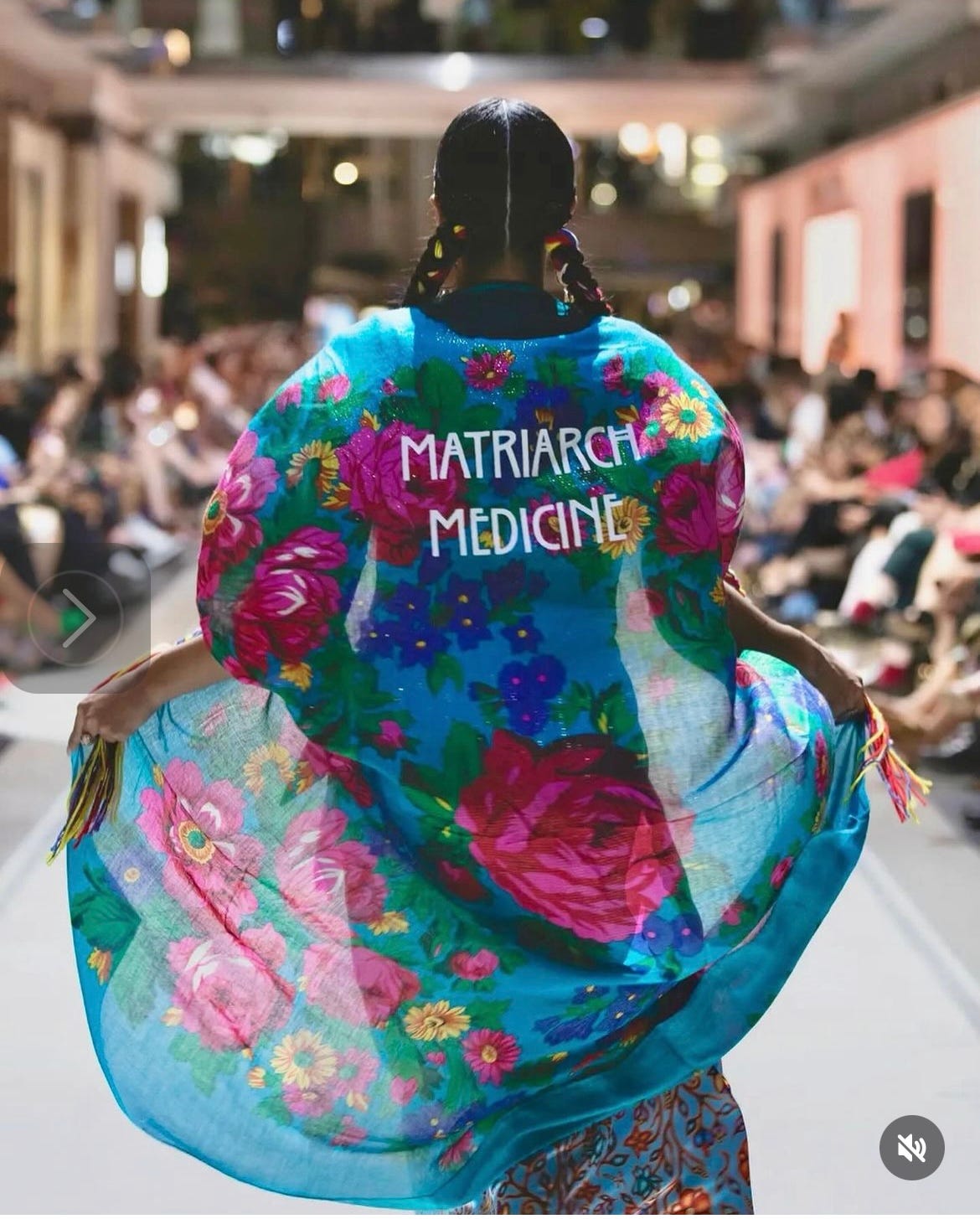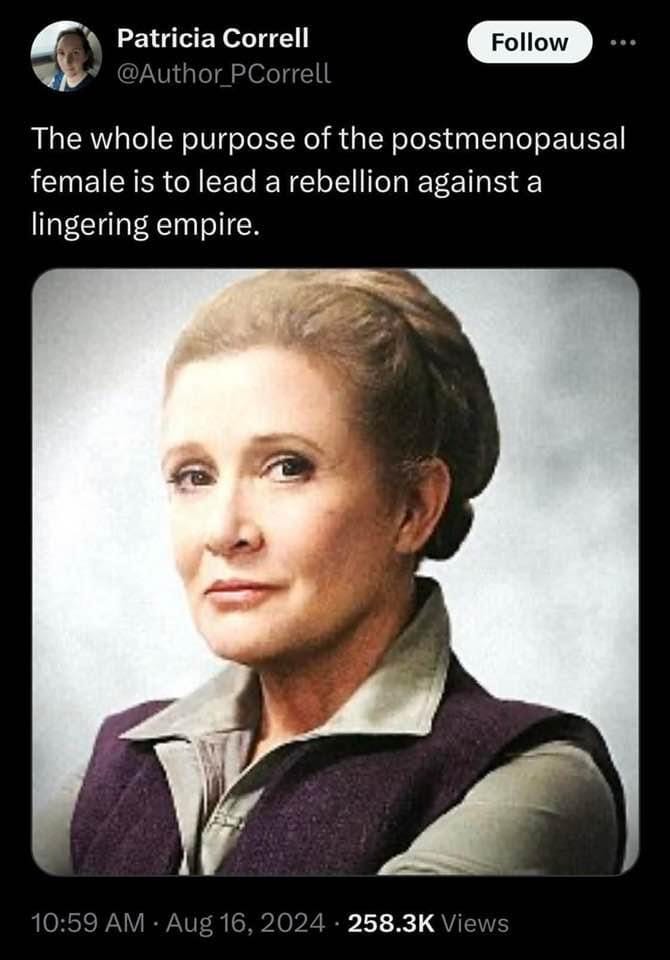Female leadership & the beginning of a collectivist era
Girls are taught to put the needs of others before their own. Maybe that's what our systems of power need more than ever.

“A woman can’t be president,” a family member—a woman—told me during the 2016 election between Hillary Clinton and Donald Trump.
“Why not?” I asked.
“Women are too emotional,” she replied, laughing as if to concede that she also could be “too emotional.”
Hillary Clinton would go on to lose that election to Donald Trump. Whether or not she was right that government leaders should never feel too much is a topic for a future post (although I have touched on it here and here.)
Eight years later, Mexico, a country known for misogyny and female violence, elected its first female president—by touting gender, no less. “She has the ovaries to get it done!” her supporters argued.
I argued why the U.S. should follow Mexico’s lead and elect a female president. Then, on August 2 of the same year, VPOTUS Kamala Harris was chosen as the Democratic presidential nominee.
In Venezuela, Maria Corina Machado, a woman, is the force behind the opposition to Maduro’s authoritarian government. Venezuela recently held an election that many claim was fraudulent, resulting in massive protests, arrests, and violence. In social media posts, some commented that Maria Colina Machado “tiene los ovarios que faltan los demás”—she has the ovaries that others lack—just as they said about the newly elected governor of Mexico. (Maybe the Democrats should start saying that about presidential candidate Kamala Harris.)
Having majored in cultural anthropology and lived in several patriarchal societies, from Alaska to Argentina, Southern California to Costa Rica, I’ve written about masculine distortion and feminine power and why patriarchy is bad for men. I’ve observed how women are conditioned to put others' needs before their own. Around the world, women often assume primary caregiving roles at home and in the workplace. Whether or not this is a biologically inherited trait is debatable, especially as new research shows that our female ancestors were more than likely physically capable of being hunters, and no evidence supports that roles were explicitly assigned to each sex.
In “The Next Wave of Feminism is Matriarchy,” Nergiz De Baere describes patriarchy as a belief system that relies on men “giving the least amount possible while receiving the most in return.” For this reason, it’s hard to separate patriarchy from our dominant individualist capitalism paradigm. Therefore, De Baere argues, to solve the climate crisis and others, we must re-center the values inherent in matriarchal societies: reciprocity, community, love, and regeneration.
While researching collectivism online, I found that most sources had nothing good to say. Perhaps this is because most of my research comes from individualistic societies. (The U.S., Great Britain, and Canada are the most individualist countries, while Latin American, Asian, and South European countries are some of the most collectivist.)
Some studies showed that collectivist cultures reinforce traditional gender roles, and women enjoy more social mobility in individualist cultures. Other studies found that community-oriented, collectivist societies have the lowest rates of homicide, suicide, juvenile delinquency, divorce, child abuse, and alcoholism.
One definition of collectivism is “putting the group's needs before the individual.” Thus, one could argue that women were the first collectivists; statistical results from studies have shown that females are generally more collectivist.
“Through motherhood and domestic work, women have already been doing free work (or giving gifts) to our society for centuries,” DeBaere writes. “Women and mothers understand what it means to pay close attention to the needs of others, otherwise the human race would not have survived.”
Again, I am not saying that women are naturally more collectivist or cooperative, just that we have been taught to be that way. Could an alternative exist where the collective is centered and women are empowered?
Now that our Earth is beginning to enter the Age of Aquarius, astrologists say we will see the end of individualist thinking and a shift to community. Perhaps the election of more women leaders is the beginning of that new era.
Genevieve Vaughan, a feminist researcher focusing on the gift economy, says women must lead this transition. “Men have been taught that they are something other,” Vaughan writes, “that they have a manhood agenda of dominance and competition, and our institutions and economy have been built on that lie.”

Maria Corina Machado began her community-centered work by founding an orphanage in Venezuela. Since then, she’s spent decades working to restore democracy to the country. Harris’ colleagues and family praise her strong sense of justice and how she puts her family first.
In the last 30 years, Zapatista women in Chiapas, Mexico, have developed their own justice, educational, and medical system outside the Mexican state. In a country where 111,000 people have disappeared, Chiapas has had zero disappearances since implementing Women’s Revolutionary Law. Since putting the demands of Indigenous women at the center of its movement, the state of Chiapas has had zero femicides.
We can cultivate a new society centered around reciprocity and community rather than greed, exploitation, domination, and separation. “We can move away from hierarchical nuclear families towards mother-centered communities where everyone takes part in the rearing of children,” De Baere writes. “We can replace violence with love and healing. We can breathe clean air again. We can rest.” With women in charge, perhaps more people will understand that so-called “feminine traits” of communal care benefit the greater good.
And, just as women and first-wave feminists adopted patriarchal models and behaviors, men can learn collectivist and matriarchal tendencies. Wouldn’t it be nice if, eventually, such traits could be considered neither feminine nor masculine—but human?
Thank you for reading. With so much to consume and such limited time, I am honored! If you want to support my work, please consider signing up for a free or paid subscription. It’s $5 for the month or $4 for the year.
With love,
Summer
The meme that inspired it all:





I just love the topics you focus on in your Substack, Summer!
I appreciate the micro lending that some nonprofits have adopted. Their research shows that when they lend to men, the men developed individual businesses and often spent their money outside the community. When they lend to women, the woman work collectively and spend the money within and for the benefit of their communities.